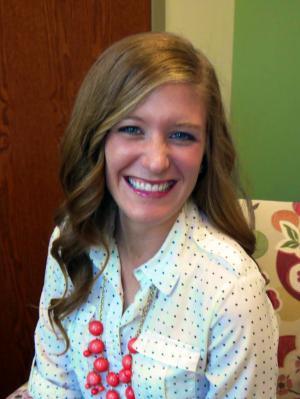
A study by an MU professor delved into how heterosexual couples cope with the trauma of miscarriage as well as examining how men handle their partners’ grief along with their own.
Haley Horstman, assistant professor of interpersonal and family communication, and Amanda Holman, assistant professor in the communication studies department at Creighton University, found that of the methods tested, “communicated perspective-taking” is the most effective way for couples to understand each other after loss.
According to the American Pregnancy Association, one in six pregnancies end in miscarriage. While miscarriage does cause physical pain for the mother, it is not limited to a health concern. It also puts a mutual strain on both parents emotionally.
Horstman said couples who suffer a miscarriage experience intense grief, yet they may not receive a lot of social support. Due to this, couples may feel unable to share their experiences, giving a miscarriage the title of an invisible loss.
“Opening the channels of communication is really important so that you can provide perspective and that you can provide support for your partner,” Horstman said.
The study defines communicated perspective-taking as similar to empathy in the way that it requires understanding. The distinction lies in trying to understand thoughts rather than emotions.This method requires listening to a significant other, validating their ideas and asking questions about their experience.
The research found that practicing this in conversation has been linked to benefits in personal and relational well-being. For example, individuals who experienced increased CPT with their partners reported greater satisfaction in the relationship overall. CPT allowed couples to positively reframe the circumstances of a negative event, benefiting them both individually and in their partnership.
“When a couple goes through a miscarriage, a lot of times their partner is the main person they talk about it with. That could be a really great thing, but it could also be a burden if that’s the only person they’re talking to,” Holman said.
To examine the effects of CPT, 183 married couples who had a miscarriage within the last 10 years were surveyed. Each participant filled out their own survey, responding to prompts covering marriage, miscarriage and coping. These prompts included statements such as “my spouse was respectful of me when I talked about my problem,” which they ranked on a scale ranging from one to five.
The surveys discovered that men in particular benefited from increased CPT. When women took on the perspective of their husband, men benefited from the mutual understanding. Horstman said men often reported feeling the need to act as a support system for their wife, taking on the role of the “rock” rather than addressing their own feelings.
“We can see from our research how important it is for women to provide support for the man during this event,” Horstman said. “But that’s tough because she’s the one who physically went through it.”
The value of a parental role was also found to contribute to the effects of CPT. Those that identified highly with a parental role experienced greater feelings of grief and therefore experienced more positive outcomes from CPT, Holman said.
“From our research, we’ve seen that it’s so devastating because they’ve already created the story about what their life is going to look like in the next couple months,” Horstman said. “They’re seeing themselves as parents, or maybe second-time or third-time parents, to this child, so when they experience a pregnancy loss, they have to reconcile that. Like, how can I still be a parent? What is my life going to be?”
The study was funded by the Dr. Richard Wallace Faculty Incentive Grants program, which funds faculty research and is awarded by the Mizzou Alumni Association. “Communicated Sense-making After Miscarriage: A Dyadic Analysis of Spousal Communicated Perspective-Taking, Well-being, and Parenting Role Salience” was recently published in the academic journal Health Communication.
_Edited by Olivia Garrett | [email protected]_